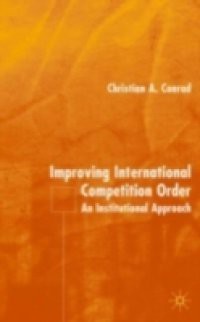After the failure of the Havana Charter in 1947, the role of mediator for questions regarding trade was handed off to the WTO, though not for cases involving foreign competition policy. The influence of the WTO is limited even in trade policy however, because it can neither decide of its own accord to act, nor does it have the ability to apply sanctions in the case of violations against the trade rules of GATT, as a national authority would. Competition policy instruments to deal with international violations of competition that effect foreign countries negatively, such as taking advantage of a position of market control or export cartels, or vertical and horizontal limitations on competition on export markets and mergers that effect third party countries, don't exist. The ideas offered in this book are meant to serve as guidelines for the upcoming discussions on reform. This book represents an attempt to work out conceptions for a better international competition order on the basis of the scientific approach "law and economics". It presents the dominant concepts of competition policy as a basis for an international competition order and tries to formulate a synthesis. The result is a new neo-ordoliberal approach. Anti-dumping-measures are analysed of the effects on international competition and resource allocation. Alternatives and improvements will be suggested. From national forms of competition policy a synthesis of international competition policies s derived. Currently reforms of the international competition order are heavily discussed. A selection of the most important suggestions will be presented, compared, and evaluated. Finally, his book offers strategies that might serve as second-best solutions. They may not be optimal for competition policy, but are politically feasible and an improvement on the current competition regulations. They would be a back-up in case the WTO competition regulations aren't realizable.

